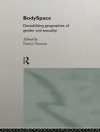New perspectives on the iconic physicist’s scientific and philosophical formation
At the end of World War II, Albert Einstein was invited to write his intellectual autobiography for the Library of Living Philosophers. The resulting book was his uniquely personal Autobiographical Notes, a classic work in the history of science that explains the development of his ideas with unmatched warmth and clarity. Hanoch Gutfreund and Jürgen Renn introduce Einstein’s scientific reflections to today’s readers, tracing his intellectual formation from childhood to old age and offering a compelling portrait of the making of a philosopher-scientist.
Einstein on Einstein features the full English text of Autobiographical Notes along with incisive essays that place Einstein’s reflections in the context of the different stages of his scientific life. Gutfreund and Renn draw on Einstein’s writings, personal correspondence, and critical writings by Einstein’s contemporaries to provide new perspectives on his greatest discoveries. Also included are Einstein’s responses to his critics, which shed additional light on his scientific and philosophical worldview. Gutfreund and Renn quote extensively from Einstein’s initial, unpublished attempts to formulate his response, and also look at another brief autobiographical text by Einstein, written a few weeks before his death, which is published here for the first time in English.
Complete with evocative drawings by artist Laurent Taudin, Einstein on Einstein illuminates the iconic physicist’s journey to general relativity while situating his revolutionary ideas alongside other astonishing scientific breakthroughs of the twentieth century.
Sobre o autor
Hanoch Gutfreund is professor emeritus of theoretical physics at the Hebrew University of Jerusalem, where he is also academic director of the Albert Einstein Archives. His books include, with Jürgen Renn,
The Formative Years of Relativity: The History and Meaning of Einstein’s Princeton Lectures (Princeton).
Jürgen Renn is a director at the Max Planck Institute for the History of Science in Berlin. His books include
The Evolution of Knowledge: Rethinking Science for the Anthropocene (Princeton).












